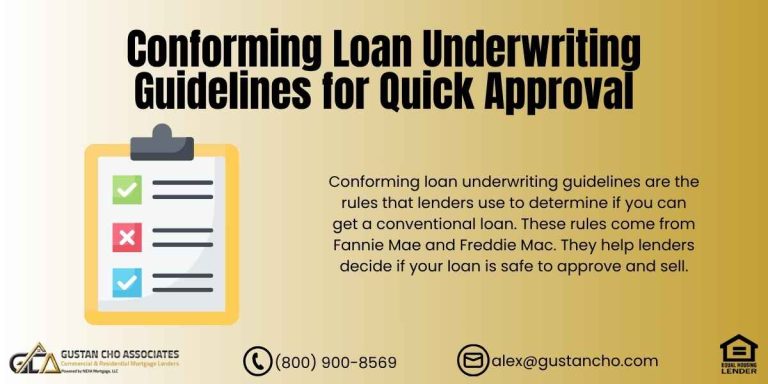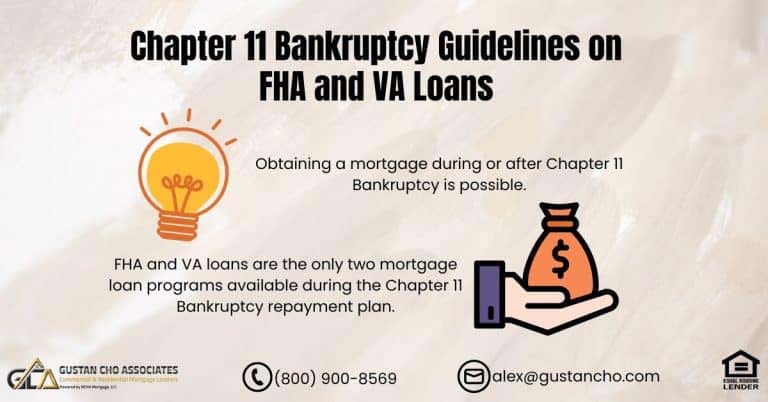This guide covers qualifying income guidelines to qualify for home loan. There are federal income guidelines to qualify for home loan. Days of no income verification to qualify for a home loan have long been gone, and it does not seem like they will ever come back shortly. There are strict income guidelines to qualify for home loan when it comes to qualifying for a mortgage. John Strange, a senior loan officer at Gustan Cho Associates, explains cash income guidelines to qualify for home loan in the mortgage process as follows:
Cash income does not count. There are strict rules and regulations on how mortgage underwriters calculate types of income. The following types of income have their income guidelines to qualify for home loan and requirements: Self-employment income, 1099 income, part-time income, overtime income, bonus income, and retirement income.
The above types of income can be used to qualify for a mortgage loan. Income guidelines to qualify for home loan are one of the most important factors in qualifying for a mortgage. Borrowers can have low credit scores and prior bad credit and qualify for a home loan. This is as long as borrowers have documented income. However, if borrowers have the highest credit scores and the perfect credit but cannot qualify with documented income, they will qualify for a home loan. They can qualify by adding a co-borrower or non-occupant co-borrower with documented income.
W2-Income Guidelines To Qualify For Home Loan
W2-income guidelines to qualify for home loan are the simplest types of income in qualifying for income when it comes to mortgages. Mortgage underwriters will require two years of W-2s and borrowers’ most recent paycheck stubs. Mortgage underwriters will also require two years of tax returns. Tax returns show the adjusted gross income after deductions. The borrower’s current monthly wage will be used with no deductions if there are no unreimbursed business expenses. Hourly wage earners’ monthly income will be calculated by taking the following steps: Take the hourly rate, multiply by 40 hours, then multiply it by 52 weeks, then divide it by 12 months. The annual salary divided by 12 months will be used to calculate income for salary wage earners.
1099 Wage Earners Income Guidelines To Qualify For Home Loan
Suppose a 1099 wage earner, two years of 1099 income will be required. The most recent two years of adjusted gross income will be averaged to generate the monthly income. However, suppose borrowers have declining income as a 1099 wage earner in most current years. In that case, the lowest 1099 income will be used and averaged by 12 months for income qualification, which will be the monthly gross income. If the declining income is substantial from one year to the next, the underwriter may disqualify the income altogether due to instability. For borrowers who have been a W-2 wage earner and have changed their status to 1099 Wage Earner, there is a two-year seasoning requirement for a 1099 wage earner to qualify for a mortgage loan.
Going From 1099 Wager Earner To W-2 Wage Earner Income Guidelines To Qualify For Home Loan
Borrowers who have been a 1099 wage earner and changed jobs to a W-2 wage earner, then new W-2 income can be used to qualify for income. However, most lenders will require borrowers will need 30 days’ paycheck stubs in their new W-2 income full-time job before they can get clear to close as part of their overlays. Gustan Cho Associates does not have any overlays on government and conventional loans. We do not require 30 days of paycheck stubs before closing. Thirty days paycheck stubs need to be posted 60 days after a home closing. The employer will require a written employment offer letter.
Part-Time Income, Overtime Income, and Bonus Income To Qualify For Home Loan
Part-time, overtime and bonus income can be used as additional income in qualifying for a home loan. These types of income can be used as long as borrowers have a two-year history of part-time income, overtime income, and bonus income. Dale Elenteny explains the importance of the likelihood for income to continue for the next three years as follows:
Mortgage underwriters will only use income if the likelihood to continue for the next three year is very likely. The likelihood of these incomes continuing for the next three years needs to be very likely.
Alimony income, child support income, and royalty income can be used to qualify for a home loan as long as the likelihood of this income is likely to continue for the next three years. Social security income and pension income can be used to qualify for a home loan. Social Security and pension income can often be grossed by 15% if social security recipients get a net check.
W2 Income Only Mortgages and Bank Statement Loans For Self-Employed Borrowers
W2 Income Only Mortgages and Bank Statement Mortgage Loans for self-employed borrowers do not require income tax returns. W2 Income Only Wage Earners who do not have 1099 income, real estate income, or other business can qualify for government and conventional loans with no tax returns and qualify with their W2 Income Only. John Strange of Gustan Cho Associates explains non-QM loans where no income documents are required:
Non-QM loans have no-doc, DSCR, bank statement, asset-depletion, P and L statement, and other non-prime loans that do not require income docs. However, non-QM loans require a 20% down payment or more depending on the borrower’s credit scores.
Bank Statement Loans For Self-Employed Borrowers are for self-employed borrowers. Twenty-four months of bank statement deposits are averaged. That figure is used as borrowers’ monthly income. A 10% to 20% down payment is required. The amount of down payment is dependent on borrowers’ credit scores. No private mortgage insurance is required on bank statements for mortgage loans for self-employed borrowers. There is no maximum loan limit. Mortgage rates depend on borrowers’ credit scores and down payment. Income guidelines to qualify for home loan on non-QM loans are exempt. Non-QM loans have no income guidelines to qualify for home loan such as DSCR loans, asset-depletion loans, bank statement loans, and stated-income mortgage loans.
Related> Part-time to Full-time income in mortgage qualification









